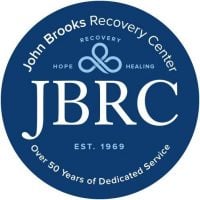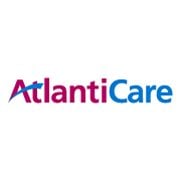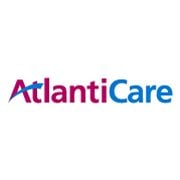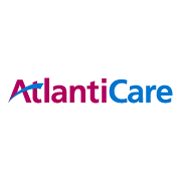Find a Substance Abuse Rehab Center or Resource in Atlantic City, NJ
Atlantic City, New Jersey has been hit hard by drug addiction and abuse. The city has seen a surge in heroin use and other illicit drugs. This has led to a rise in crime and violence, as well as an increase in the number of overdoses and deaths. Drugs such as cocaine, marijuana, and methamphetamines are also becoming more popular in Atlantic City. This is a serious problem that is affecting the city and its residents.
There are a few reasons for this increase in drug use. One is the city’s close proximity to Philadelphia, which is a major hub for drug trafficking. Another reason is the city’s struggling economy. There are high levels of poverty and unemployment, which can lead people to turn to drugs as a way to cope with their problems.
We’re highlighting many of the best facilities and centers for addiction rehab here, all of them with their own special qualities. Our directory includes a lot of services available in Atlantic City, ready to help you or a loved one lead a safe and clean life, away from opioid abuse in New Jersey.
Contact Your New Jersey Admissions Expert
We will help you find treatment based on your location, budget, and specific needs and help you get started safely.
Free + Confidential Consultation
Browse 9 Centers in Atlantic City, New Jersey
The John Brooks Recovery Center, founded in 1969, is an accredited addiction treatment facility in Atlantic City, New Jersey that offers a range of services, including aftercare support, detox, drug rehab, and dual-diagnosis to treat patients for alcoholism, opioid addiction, dual diagnosis, and substance abuse at inpatient, outpatient, and residential levels of care, with private health insurance accepted.

Atlanticare - Behavioral Health Atlantic City
Atlanticare Behavioral Health in Atlantic City, NJ is an accredited addiction treatment facility offering evidence-based practices such as CBT and motivational interviewing, along with a multidisciplinary team of experienced professionals to provide comprehensive care for individuals seeking recovery from substance abuse.

Atlanticare's rehabilitative program offers numerous holistic care and treatment options, accredited by JCAHO, to create tailored solutions for people transitioning from addiction and dual diagnosis conditions.

At AtlantiCare in Atlantic City, NJ, they offer specialized detoxification, rehab, and dual-diagnosis services with experienced physicians and mental health professionals, and accept private health insurance.

Atlantic City Medical Center - Mental Health
The Atlantic City Medical Center - Mental Health provides quality mental health care, tailored treatments and assessments, medication management, and promotes community awareness through support groups and events.
UnavailableAlcoholicos Anonimos - Group Sobriedad
Covenant House New Jersey
Covenant House New Jersey provides addiction treatment services including inpatient, outpatient, and residential programs utilizing evidence-based methods such as group and individual therapies, addiction education, and external resource referrals to help individuals and families recover from substance abuse and drug addiction.
AA - Alcoholics Anonymous
Institute for Human Development
The Institute for Human Development in Atlantic City offers specialized and comprehensive treatment for individuals struggling with drug addiction, including various levels of care, group and individual therapy sessions, and tailored plans to promote long-term recovery.
Information About Substance Abuse and Addiction in Atlantic City, NJ
Drug addiction is a complex brain disease that requires professional treatment and support. Rehab centers offer a variety of services that can help people overcome their addiction and get on the road to recovery.
Some of the services that rehab centers offer include:
- Detoxification: This is the process of ridding the body of the toxins that have built up from drug use.
- Counseling: This can help people understand their addiction and learn how to cope with triggers and cravings.
- Therapy: This can help people identify the underlying causes of their addiction and work through any traumas or issues that may be contributing to their drug use.
- Aftercare planning: This helps people transition back into their everyday lives after treatment and provides them with resources and support to maintain their sobriety.
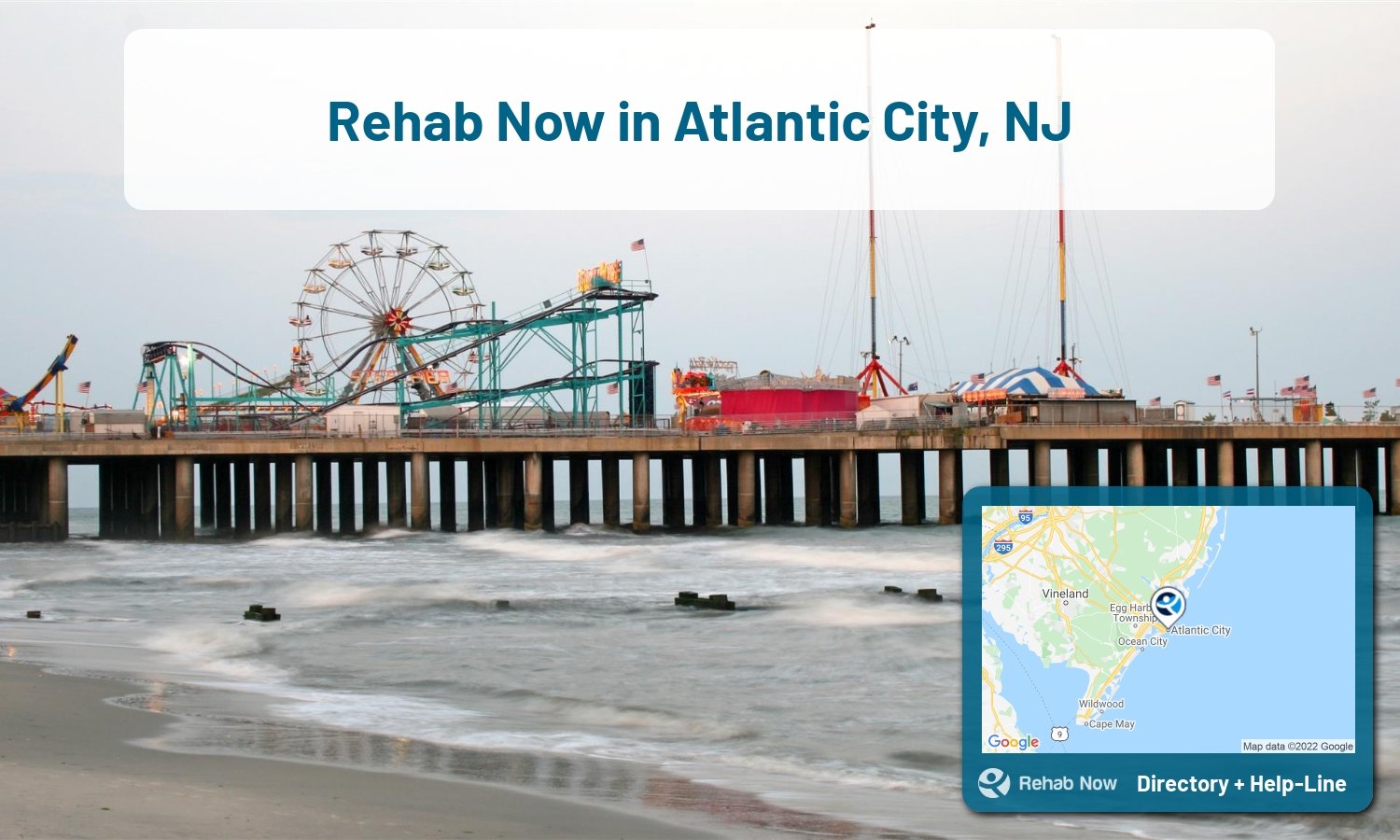
What types of treatment are available in Atlantic City, New Jersey?
Some of the most common treatment options include inpatient rehab. This type of rehab program provides all-day care and intensive treatment for patients who are struggling with addiction. Patients live at the rehab center during their stay and receive around-the-clock care from a team of professionals.
Outpatient rehab is another common treatment option. This type of program allows patients to live at home while they receive treatment during the day. Patients typically attend therapy sessions several times a week and may also participate in individual and group counseling.
Sober living homes are another treatment option for patients who are struggling with addiction. These homes provide a safe and supportive environment for people in recovery. Residents typically have to follow certain rules, such as abstaining from drugs and alcohol and participating in regular meetings.
What is an intervention?
An intervention is a meeting in which family and friends confront an individual with their addiction. The goal of an intervention is to get the individual into treatment.
If you are considering an intervention, you should seek help from a professional to ensure that it is done properly.
Drug and Alcohol Statistics in Atlantic City, New Jersey
A survey found that 1 in 8 residents said they had used an illicit drug. This is a problem that is affecting people of all ages, but it is especially prevalent among young adults. In Atlantic City, the number of drug-related deaths among people aged 25-34 has increased by 400% since 2003.
In addition, the rates of alcohol abuse and binge drinking are also high in Atlantic City. According to the local health department, 27% of residents considered themselves to be binge drinkers, and 10% of those drinkers are under age 21.
- The number of drug overdoses in the city increased by 66% from 2015 to 2016.
- 36% of residents said they knew someone who had died from a drug overdose.
- 16% of addicts said they started using drugs before the age of 18.
- The number of people seeking treatment for substance abuse has increased by 30% in the last five years.
Additional Treatment Centers in New Jersey
The state of New Jersey is afflicted by the rising opioid overdose crisis and the increase in the number of residents engaging in illegal substance abuse. 90% of the 2,900 drug overdose deaths in New Jersey involved opioids in 2018. Over 1.1 million New Jersey residents reportedly use drugs in a given year. High prevalence of drug and alcohol abuse caused 14% of all deaths in the state between 2008 and 2017.
Still haven't found the right recovery center? Browse nearby New Jersey cities.
- Cranford, NJ (90.0 mi.)
- Salem, NJ (57.5 mi.)
- Whiting, NJ (41.1 mi.)
- Little Silver, NJ (70.4 mi.)
- Franklin, NJ (122.1 mi.)
- Hopelawn, NJ (80.7 mi.)
- Morristown, NJ (99.4 mi.)
- Eatontown, NJ (67.7 mi.)
- Union City, NJ (100.4 mi.)
- Rio Grande, NJ (34.2 mi.)
- Whitehouse Station, NJ (88.7 mi.)
- Mendham, NJ (99.0 mi.)
- Trenton, NJ (39)
- Newark, NJ (36)
- Paterson, NJ (25)
- Camden, NJ (24)
- Cherry Hill, NJ (22)
- Hackensack, NJ (20)
- Toms River, NJ (19)
- Jersey City, NJ (19)
What is the difference between faith-based and general rehab programs?
Faith-based rehab programs incorporate religious faith into the addiction treatment process. Patients in these programs may participate in Bible study, prayer, and worship services as part of their treatment.
General rehab programs, on the other hand, do not focus on religion. Instead, they provide a secular approach to addiction treatment that may include individual and group therapy, medication, and other evidence-based treatments.
Both types of rehab programs can be effective for treating addiction, and the best approach for each patient depends on their individual needs and preferences.
What if I have a co-occurring mental disorder?
If you have a co-occurring mental disorder, it is important to find a treatment program that can address both disorders. Some rehab centers offer dual diagnosis treatment, which is designed to treat both addiction and mental illness.
In addition to substance abuse treatment, patients in dual diagnosis programs may also receive therapy and medication for their mental disorders. This integrated approach can be very effective for treating both disorders.
How does a treatment plan created?
Treatment plans are created based on each patient’s individual needs. The type and severity of their addiction, their mental health, their medical history, and other factors will all be considered when creating a treatment plan.
After completing an assessment, the treatment team will develop a plan that may include detoxification, counseling, therapy, and aftercare planning.
Patients in treatment will typically have regular meetings with their counselors to discuss their progress and make any necessary changes to their treatment plan.
What are the different types of therapy?
There are many different types of therapy that can be used to treat addiction. Some of the most common types of therapy include:
- Cognitive behavioral therapy: This type of therapy helps patients identify and change the thought patterns and behaviors that contribute to their addiction.
- Dialectical behavioral therapy: This type of therapy can be very effective for treating addictive behaviors. It focuses on teaching patients how to manage their emotions and cope with stress in a healthy way.
- Motivational interviewing: This type of therapy helps patients explore their motivation for change and develop a plan to achieve their goals.
- Family therapy: This type of therapy can help families heal the damage that has been caused by addiction and learn how to support their loved ones in recovery.
How private is my rehab stay?
Rehab centers understand the importance of privacy and confidentiality. All patient information is kept confidential, and patients are typically only able to receive visitors with prior approval from the treatment team.
Some rehab centers may offer private rooms for an additional fee. This can provide a higher level of privacy and security for patients who are concerned about their confidentiality.
In addition, some rehab centers can’t release any information about their patients to anyone without their written permission. This includes family members, employers, and other individuals.
What are the admissions requirements?
The admissions requirements to drug rehab may vary depending on the facility, but there are some general guidelines that all treatment centers follow.
First and foremost, patients must be willing to participate in treatment and abstain from drug use.
Second, they must be physically and mentally stable enough to participate in the program.
Third, they must have a support system in place to help them through the process.
Fourth, they must be able to financially afford the program.
Finally, they must be committed to making a change in their lives. If you or someone you know meets these criteria, then they may be eligible for admission into a drug rehab program.
Need treatment nearby in Atlantic City, New Jersey? Choose a drug/alcohol rehab center from our list, or call our hotline now for free help. (888) 674-0062.
